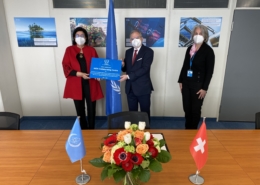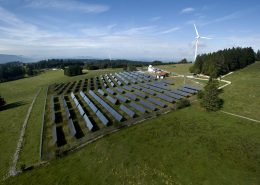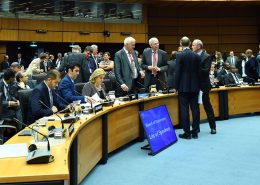SWEET tender: award for four research teams
ETH Zurich, EPF Lausanne, the University of Geneva and the Paul Scherrer Institute lead the four consortia that have been awarded the first call for proposals under the SWEET research funding programme. SWEET provides funding contributions of CHF 6 to 8 million to the research projects of the four consortia for the following 6 to 8 years.
SWEET (Swiss Energy Research for the Energy Transition) is a research funding programme of the Swiss Federal Office of Energy. Research teams are invited to work in trans- and interdisciplinary consortia to find solutions for the transformation of the Swiss energy system. How can renewable energies be integrated into the Swiss energy system of the future so that it is resilient and sustainable? That was the initial question for the first call for proposals.
What research projects are the four first-place consortia pursuing? Energeiaplus presents them.
PATHFNDR (ETH Zurich)
Participating institutions: EMPA, PSI, ZHAW, HSLU, UniGE, EPFL
Budget: 22.2 million Swiss francs - SWEET share: 8 million Swiss francs
Flexibility and networking (sector coupling): These are the keywords of the PATHFNDR project (PATHways to an Efficient Future Energy System through Flexibility aND SectoR Coupling). Based on five key questions, the consortium aims to clarify how the Swiss energy system must be restructured so that it can absorb a much larger proportion of renewable energy.
- What does the 2050 energy system look like that is at the same time efficient, flexible, sustainable, competitive and resilient?
- What regulatory and legislative frameworks are needed to achieve this?
- What business models need to be developed for the required flexibility and sector coupling?
- How do you get citizens on board?
- What is the best way to transfer pilot and demonstration projects at the regional/city/municipality level in order to strengthen the understanding of the technical and socio-economic aspects?
EDGE (EPF Lausanne)
Participating institutions: ETHZ, UniGE, UniBE, HSG, HSLU, ZHAW, BFH, PSI, WSL, SUNWELL, Basler&Hofmann AG
Budget: 21.2 million Swiss francs - SWEET contribution: 8 million Swiss francs
EDGE stands for Enabling Decentralized renewable GEneration in the Swiss cities, midlands and the Alps. The EDGE consortium aims to combine research and innovation through pilot and demonstration projects in selected areas - namely in an urban environment, in the midlands and in the Alps. The aim is to promote the production and supply of local renewable energy. Electricity, mobility and heat generation will be analysed for this purpose.
The breadth of the partners involved demonstrates the trans- and interdisciplinary nature of the project: For the transformation of the Swiss energy system towards renewable, not only technological development is relevant. In its research projects, the consortium also takes into account political processes, management, economics and sustainability. In this way, the most efficient measures are to be identified in order to achieve the best possible potential for integrating decentralised renewable energies.
DeCarbCH (University of Geneva)
Participating institutions: EMPA, ETHZ, HSLU, OST, ZHAW, CREM, HEIG-VD, Institute for Sustainability and Democracy Policy, SUPSI
Budget: CHF 17.5 million - SWEET funding: CHF 8 million
The DeCarbCH (Decarbonization of Switzerland) project focuses on the heating and cooling sector. The aim of the project is to promote the use of renewable energies both in the building sector and in the industrial and service sectors - with a view to achieving the Federal Council's net-zero target for 2050.
Heat grids (for heating and cooling), energy storage and renewable energies and conversion technologies are the three main components of the project. The project aims to develop suitable combinations for these three areas that take into account technical, economic and sustainable aspects.
DeCarbCH comprises various individual projects in different regions, which are intended to demonstrate practicable solutions. As in the other projects, the aim is to work in an interdisciplinary manner. This is also reflected in the composition of the project partners involved.
SURE (Paul Scherrer Institute PSI)
Participating institutions: ETHZ, EPFL, USI, TEP-Energy, SUPSI, UniBE, UniGE, ZHAW, E3-MODELLING S.A.
Budget: 9.1 million Swiss francs - SWEET contribution: 6 million Swiss francs
Sure stands for SUstainable and REsilient energy for Switzerland, i.e. a sustainable and resilient energy supply for Switzerland. The research project aims to identify what is needed to ensure security of supply in a sustainable manner. The consortium is building on existing research findings and using them to develop new data- and model-based scenarios. These are intended to show ways of restructuring the energy system, but also to include possible future disruptions to the system (shock scenarios). The aim is to develop strategies and measures with which the system can be made more robust against disruptions and - should a disruption occur - can also recover more quickly.
The results will be made available to the general public and decision-makers via a web-based platform.
 Shutterstock 288462527
Shutterstock 288462527
 IAEALabor Spiez festigt die Zusammenarbeit mit der Internationalen Atomenergie-Organisation (IAEA)
IAEALabor Spiez festigt die Zusammenarbeit mit der Internationalen Atomenergie-Organisation (IAEA)  La centrale solaire de Mont-Soleil a 25 ans
La centrale solaire de Mont-Soleil a 25 ans  Zweite Tagung des Board of Governors der IAEA in Wien
Zweite Tagung des Board of Governors der IAEA in Wien  ShutterstockHow Swiss Investors Can Drive the Green Transition
ShutterstockHow Swiss Investors Can Drive the Green Transition 
 Foto: Pierre Montavon.
Foto: Pierre Montavon. BFE
BFE
Wir hatten doch schon das NFP70/71, 500 Forschende, 103 Projekte für 45 Millionen.
Aber eine Speicherstudie mit Kosten, Bedarf und Realisierbarkeit fehlte. Auf meine Frage wusste Beat Hotz-Hart NFP keine Antwort. Das ist Grobfahrlässigkeit für unsere Versorgungssicherheit, siehe das BABS.
Marianne Zünd hat mir geschrieben im 2020 kommt eine Speicherstudie, ich habe nichts gesehen.